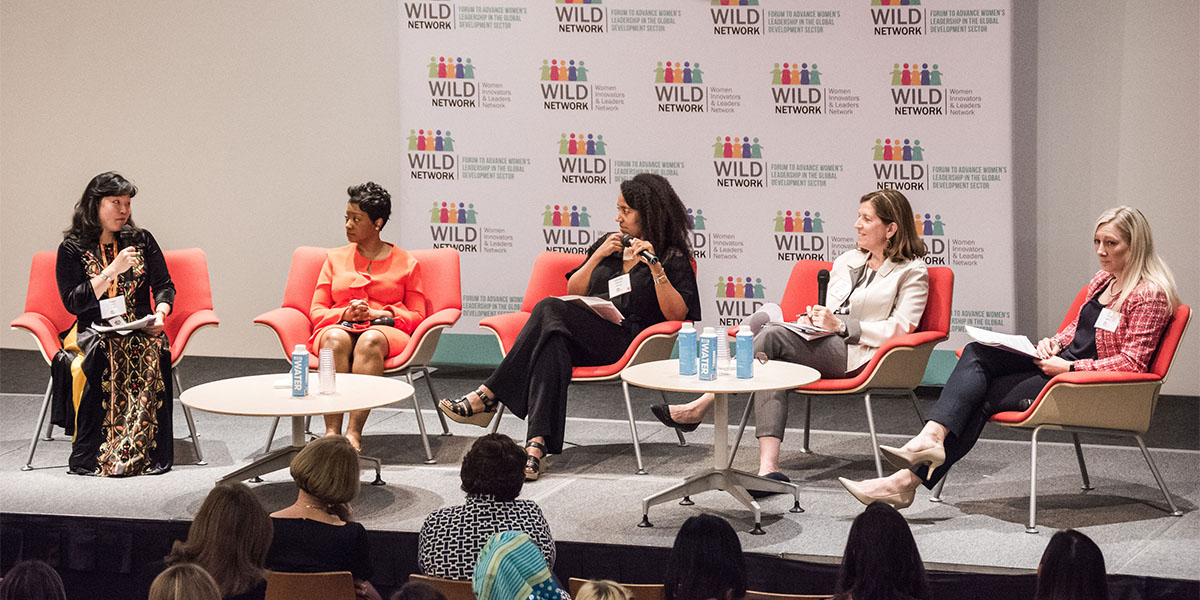“This isn’t a conference, it’s a movement.”
The annual WILD Forum returned on 16-19th May with plenty of thought-provoking sessions on female leadership, localisation and personal development.
‘Leadership resides in every role.’
Oxford HR was delighted to host our own panel discussion on Strategies to Support Female Leaders from Sub-Saharan Africa, featuring our Associate Consultant Peter Irungu, Gayathi Butler, Director of Programmes at Malala Fund, and Dorothy Nyambi, President at MEDA. This conversation was a powerful one; discussing how leadership is about power dynamics regardless of your position within an organisation, and that bringing different people to the table has to be authentic and not performative, especially in the international development space. Both speakers made the important point that we already have fantastic leaders in the Global South, we just need to play our part in creating an enabling environment.
‘The global north needs to interrogate the structures we have in place; this requires commitment from the top of the organisation, good role modelling and recognising our own weaknesses.’
Some of the key learnings from the conference were the importance of networks; they can help women create powerful partnerships and crowdsourcing can help you succeed. Remember to pay it forward, you never know when you might need some help. This was especially resonant with the humanitarian community where the lesson was, ask who is in the same region as you if you are travelling; this will give you instant access to support networks which can be crucial in this area.
‘Men should live and practice feminist leadership principles in workplace and in all walks of life. Be inclusive, challenge everyday sexism, understand your own biases and privileges.’
The conference also touched on the women shaping climate action, and there were important takeaways in this regard. Climate change has a disproportionate impact on women and girls, with females more likely than men to be killed in natural disasters. Looking at the solutions space, it was noted that the IPCC report found that women are most commonly the users of solutions, for example energy, which is why it’s so vital that women are involved in the process.
‘Climate change is sexist, but our response shouldn’t be.’
The conference also touched on the women shaping climate action, and there were important takeaways in this regard. Climate change has a disproportionate impact on women and girls, with females more likely than men to be killed in natural disasters. Looking at the solutions space, it was noted that the IPCC report found that women are most commonly the users of solutions, for example energy, which is why it’s so vital that women are involved in the process.
It was also exciting for WILD to reveal their Impact Report, designed by our design agency, OXygen. You can check out the report here.



